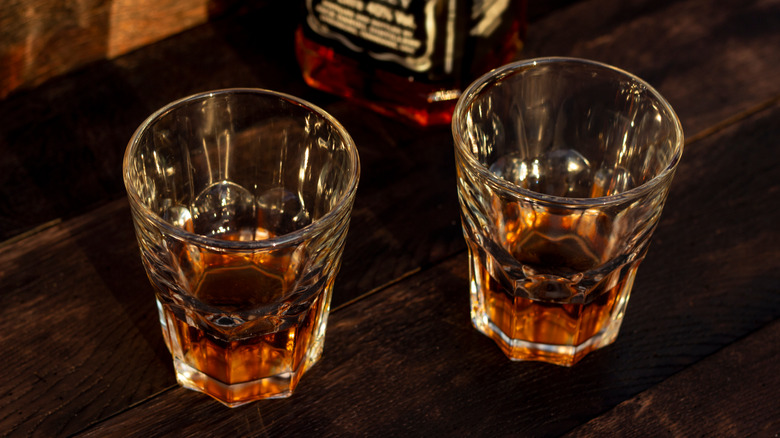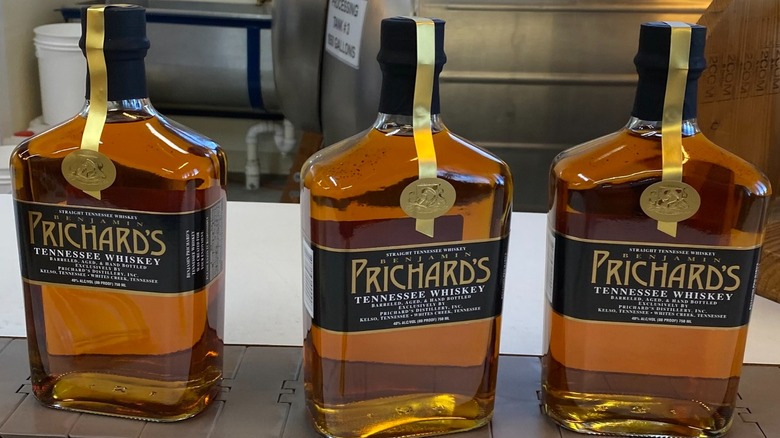What Makes Tennessee Whiskey Unique (It's Not Just Where It's Made)
Whiskey can be an ambiguous term in the U.S. since when we use the word on its own, we may be referring to a blended or Canadian-style whiskey (Crown Royal — flavored or not – would be a prime example.) If talking about a different type of whiskey, we often refer to it by a more specific designator such as Scotch, rye, or bourbon. To complicate things even more, sometimes a bourbon isn't a bourbon, especially when it's made in Tennessee. While we'd advise you not to get into any arguments with bartenders about the matter, technically Jack Daniel's isn't a bourbon at all, and you won't find the word on its bottles. Instead, it's a Tennessee whiskey — a style that, to be honest, tastes almost exactly like bourbon since both are made from at least 51% corn and distilled to 80% ABV or less.
Two things keep Tennessee whiskey from being a type of bourbon: By law (Tennessee Code Title 57 Chapter 2, Section 106, to be specific) it must be produced in Tennessee and filtered through maple charcoal before it's aged. This step is called the Lincoln County Process and was named for Jack Daniel's first distillery location. The filtering doesn't really add anything to the whiskey — instead, it subtracts. According to a 2019 presentation made by University of Tennessee food scientists to the American Chemical Society (via Discover), the filtering reduces certain chemical compounds by up to half and takes away some of the sharper flavor notes.
One distillery doesn't use the Lincoln County Process
While the state law referenced above covers nearly all Tennessee whiskeys, there is one distiller that doesn't have to abide by the stipulation that the Lincoln County Process be used. That distiller, Prichard's by name, is exempt due to a grandfather clause — despite being the only whiskey distiller in Lincoln County at the time that the laws defining Tennessee whiskey were passed (an event that took place in 2013), Prichard's had never used the county's namesake process to distill its whiskeys. For this reason, it applied for — and received — an exemption from the requirement. As a result, it continues to produce whiskey the same way it's been doing since 1997.
In addition to not using charcoal filtering for its Tennessee whiskey, Prichard's also uses white corn instead of the more typical yellow kind. Reviews of this whiskey don't tend to note any particular harshness due to lack of filtering but may mention some sweet notes that the distiller claims are due to its choice of corn.

